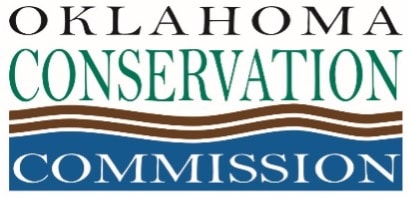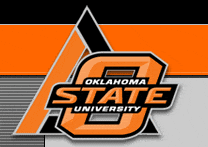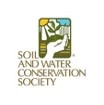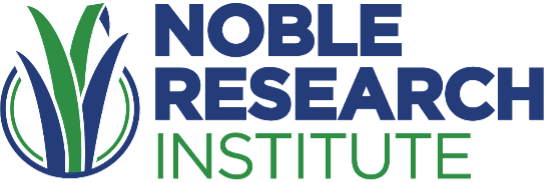Did you know that the importance of soil health is being recognized in Oklahoma and across the nation? Many conservation partners in Oklahoma are working together to offer workshops, demonstrations, field days, soil research and other resources for a variety of audiences. Read on to see what we’re doing and how we can help you.

Oklahoma Conservation Commission (OCC)
OCC’s Soil Health Education Program is a statewide initiative to train conservation district employees and directors in the importance of soil health so they can share that knowledge with their local communities. OCC’s multi-level education program includes Train the Trainer field days that provide employees the skills to host their own trainings. OCC also provides educational check-out materials and assists districts with public outreach with field days and on-farm demonstration projects. To see a description of our training sessions, visit our soil health page.
Our target audiences: Our staff, conservation district staff and boards, public
How to get involved: Contact your local conservation district for educational opportunities, or contact us.
Contact: Greg Kloxin

Oklahoma Conservation Districts
Conservation districts across Oklahoma are increasing their knowledge of soil health by attending training sessions offered to them by OCC and NRCS. The districts are then sharing that knowledge with local agriculture producers and the public by hosting soil health field days and partnering for on-farm demonstrations. Districts are also making soil health displays to take to farm shows, natural resource days, and other events.
Our target audiences: Ag producers, public
How to get involved: Attend or host a soil health field day or conduct an on-farm demonstration
Contact: Your local conservation district
Oklahoma Association of Conservation Districts (OACD)
OACD’s Healthy Soils & Ecosystems project is a statewide initiative to educate and engage agriculture producers, community leaders, and citizens in improving the health and function of our soil. In particular, agriculture producer participants will learn about the benefits of integrating conservation practices such as cover crops into their farming operations from their peers, agriculture producers, and soil science experts via the Conservation Partnership. The project’s aim is to improve the overall health of our cropland, rangeland, and forest soils while educating the larger community about the positive work of the conservation districts, Conservation Commission, and NRCS surrounding soil health. The project will also convene traditional and non-traditional partners around the subject to improve collaboration and understanding of the conservation movement in Oklahoma.
Our target audiences: Ag producers, community leaders, public
How to get involved: Conservation districts can contact us for help publicizing soil health field days
Contact: Sarah Blaney

Natural Resources Conservation Service (NRCS)
NRCS’s “Unlock the Secrets of Soil Health” Campaign provides resources to help the public understand the basics and benefits of Soil Health management systems. NRCS works with farmers to determine their specific needs and implement soil health into their operations. NRCS is partnering with farmers willing to implement management systems on their land and willing to share their successes with others through demonstrations. NRCS Oklahoma staff are also sharing their expertise by partnering with the Conservation Commission and OACD to bring Soil Health education to conservation districts and ag producers.
Our target audiences: Ag producers, conservation districts, public
How to get involved: Contact your local NRCS field office for assistance
Contact: Steve Alspach

Oklahoma State University (OSU)
OSU is conducting field trials to evaluate cover crops and no-till cropping systems. Locations of the field sites are in Lahoma, Stillwater, Goodwell, and Altus. The research fields have the advantage of different tillage and cropping systems being in close proximity, which is helpful for demonstration purposes and comparing differences among soil treatments. These sites provide an opportunity to talk about management systems and how the crop rotations work at each location. Field days are held for producers to learn about different cover crop species and how they might fit on the producer’s farm. OSU is also researching the effects of different residue management practices for canola establishment on Soil Health indicators.
Our target audiences: Ag producers, extension staff, partners, public
How to get involved: Attend an OSU field trial tour, get a soil test and discuss it with an extension agent
Contact: Dr. Jason Warren

Southern Plains Climate Hub
The Southern Plains climate Hub is focused on fostering development of climate-savvy agricultural decision support systems for farmers, ranchers, and foresters from “the bottom up.” Working with partners on a county by county basis, the hub strives to involve producers as much as possible. It is encouraging agriculture producers and forest landowners to keep records detailing what is working on their land, what is not, and any ideas for adaptation they would like to see demonstrated. The Hub endeavors to make those demonstrations happen, with an eye to producer “bottom lines” as well as conservation concerns.
Our target audiences: Ag producers, forest landowners, and stakeholders in OK, TX, KS
How to get involved: Keep and share records that detail what practices, crops, and methods are and are not working where you are
Contact: Clay Pope

Soil and Water Conservation Society – Oklahoma Chapter (OK SWCS)
The Oklahoma Chapter of the Soil and Water Conservation Society is a member organization that provides education and information on Soil Health and water quality to its members. The group shares information about training and educational opportunities, supports Soil Health and water quality-related events through monetary donations, provides scholarships, and holds an annual conference.
Our target audiences: Soil and water professionals in Oklahoma, public
How to get involved: Become an active member
Contact: Josh Ketch

The Samuel Roberts Noble Foundation
The Soil Renaissance is led by The Samuel Roberts Noble Foundation, based in Ardmore, Oklahoma, and Farm Foundation, NFP. Launched on Dec. 5, 2013, the Soil Renaissance is a national movement to make soil health the cornerstone of land use management decisions, and bring attention to the critical role of healthy soils in vibrant natural resources systems. During its first year, the Soil Renaissance has begun work on implementing a Strategic Plan that focuses on four foundational issues key to all aspects of soil health work: a standard for measuring soil health; economic tools to assess the value of soil health; identifying research needs; and education and outreach. Teams of experts, including researchers, farmers, government representatives and industry experts from across the United States, have formed working groups around these four areas, and are working to accomplish key goals.
Our target audiences: Ag producers, researchers, industry experts, public
How to get involved: Visit www.soilrenaissance.org: General Noble Foundation website: www.noble.org
Contact: Brook Gaskamp, Project Coordinator for the Soil Renaissance, (580) 224-6510
Western Farmers Electric Cooperative (WFEC)
Western Farmers Electric Cooperative has been a major proponent of improving soil health for improved water and air quality in Oklahoma since 2008. They funded the pilot program that launched the Oklahoma Carbon Sequestration Certification Program. The program encourages practices that sequester carbon while improving soil, air, and water quality. WFEC is a strong proponent of Oklahoma using agricultural carbon offsets to meet air quality standards.
Our target audience: Ag producers
How to get involved: Participate in soil health and water quality programs offered by our partners
Contact: Kent Fletcher, Environmental Scientist




